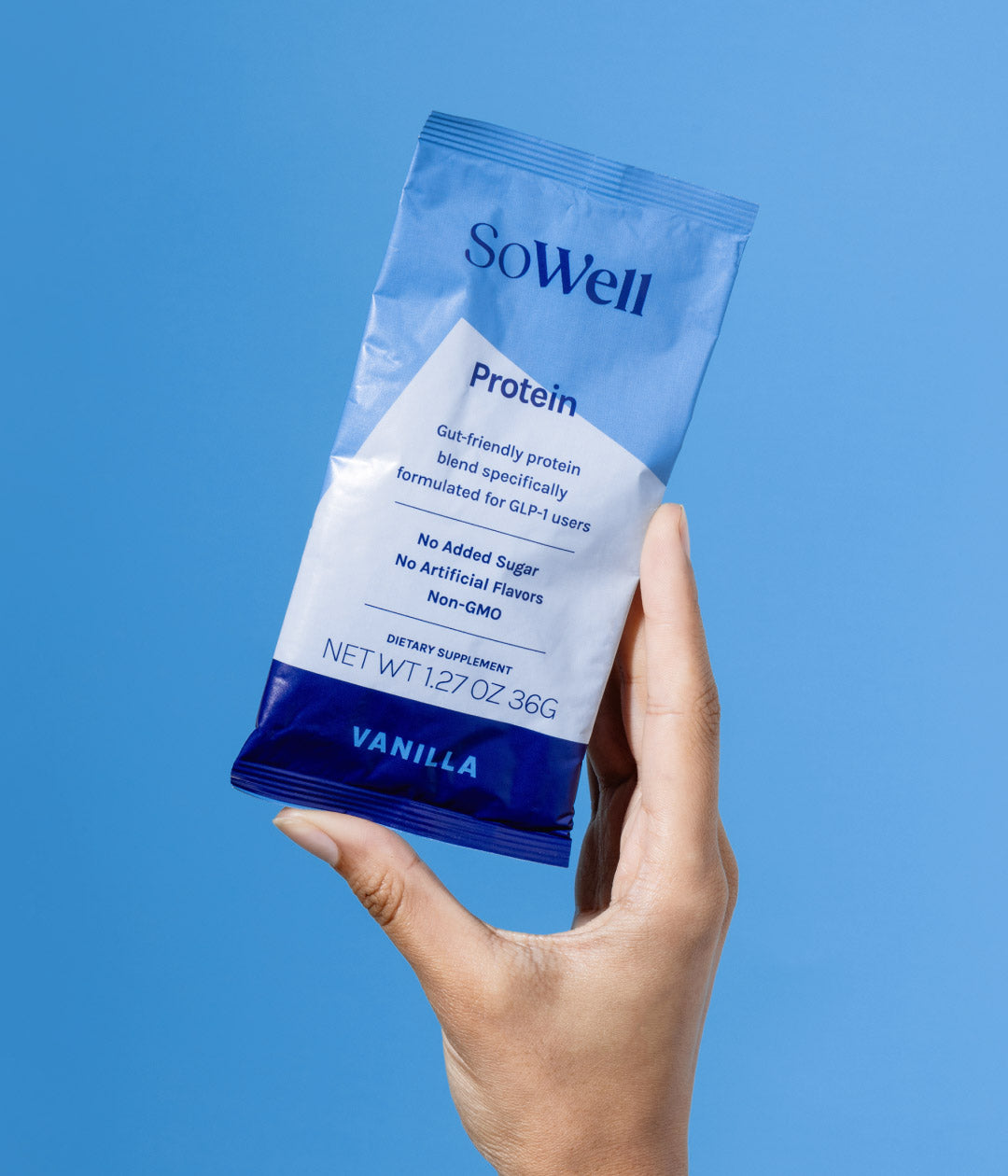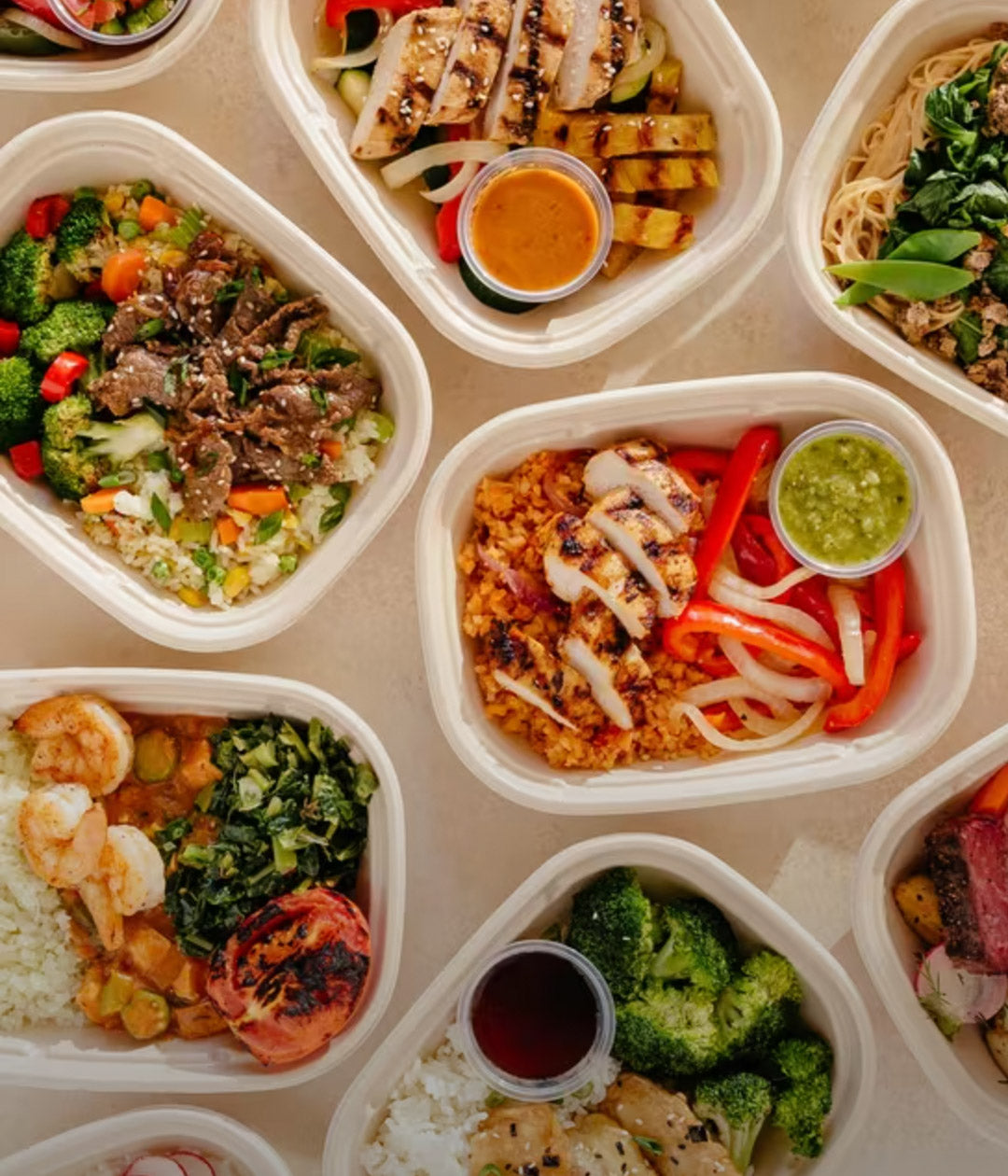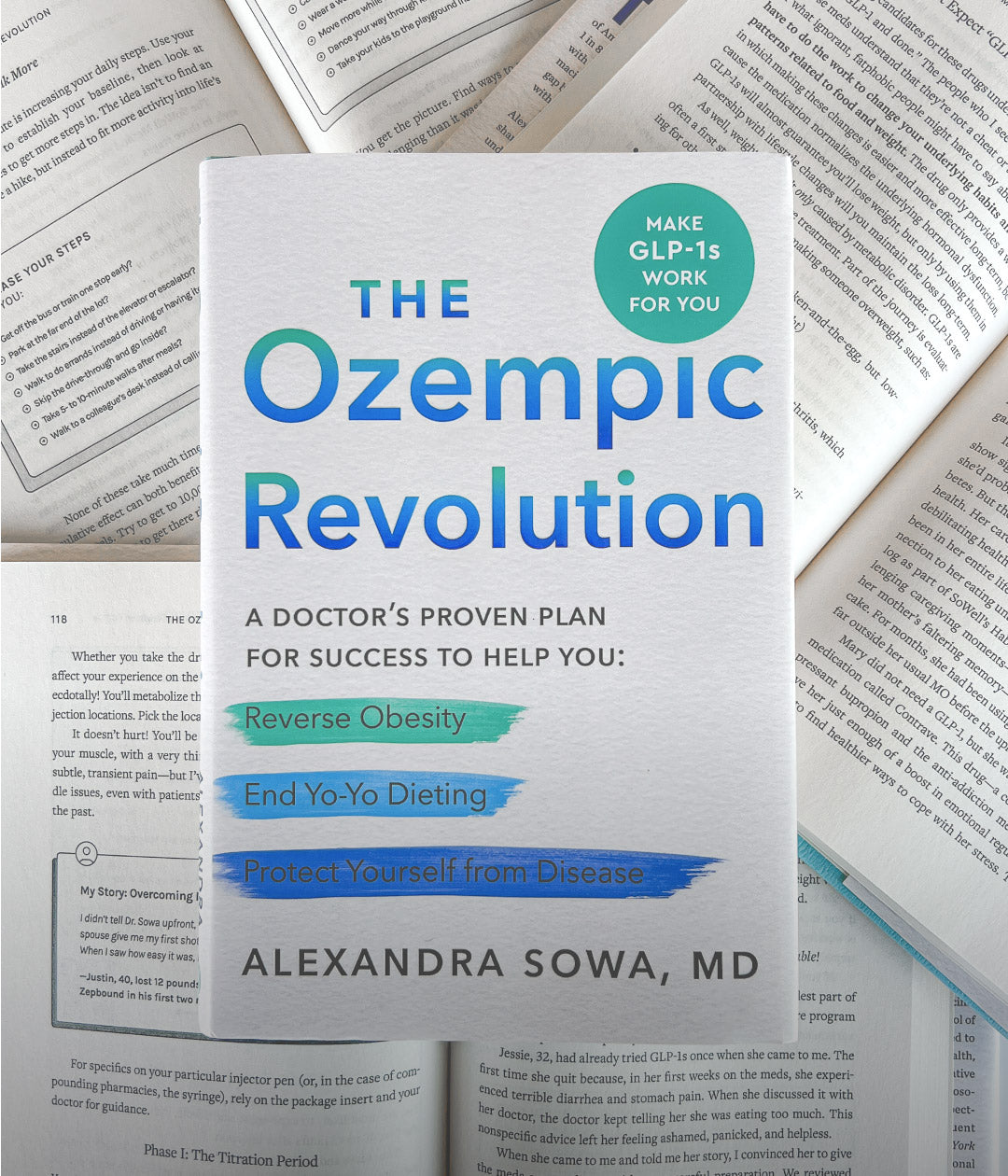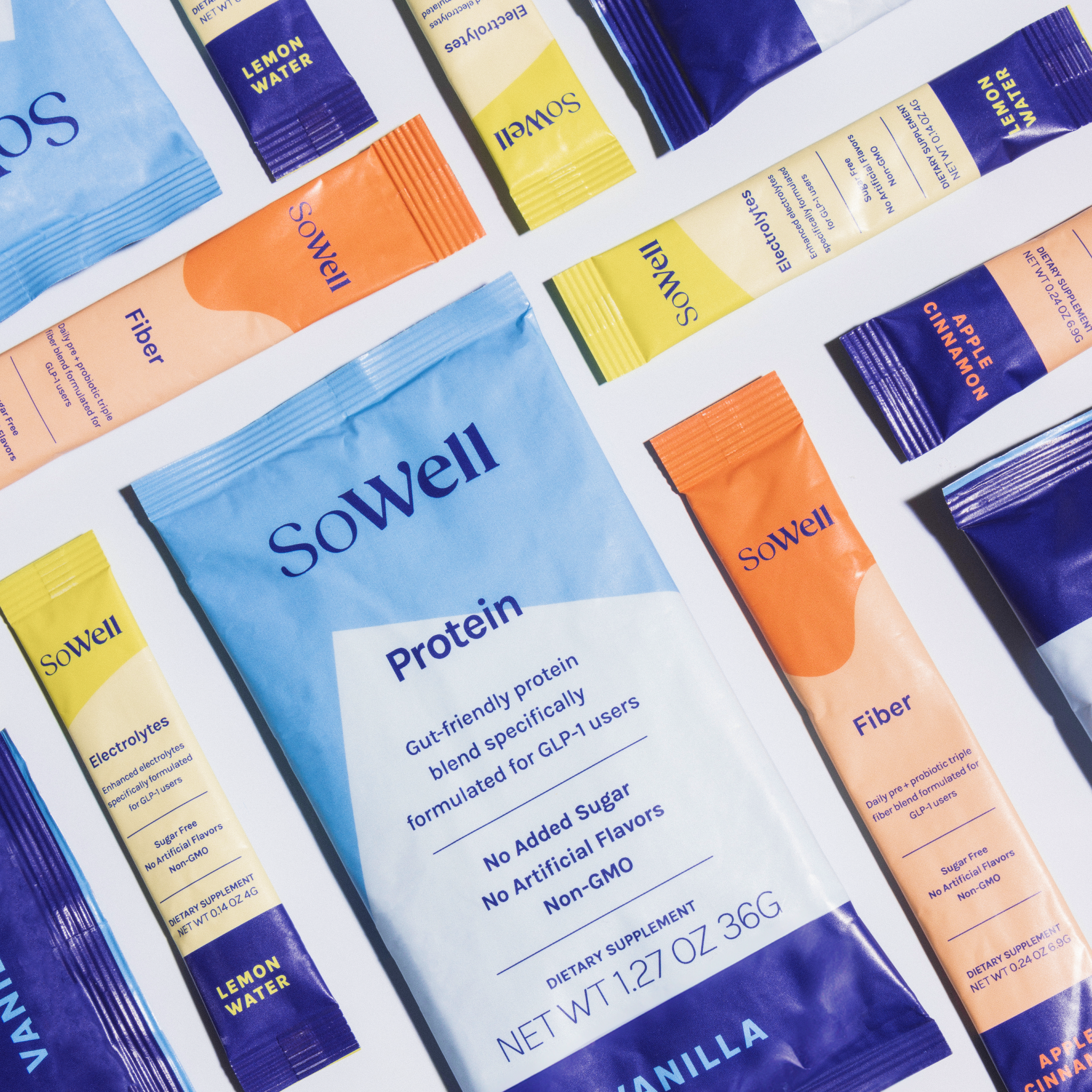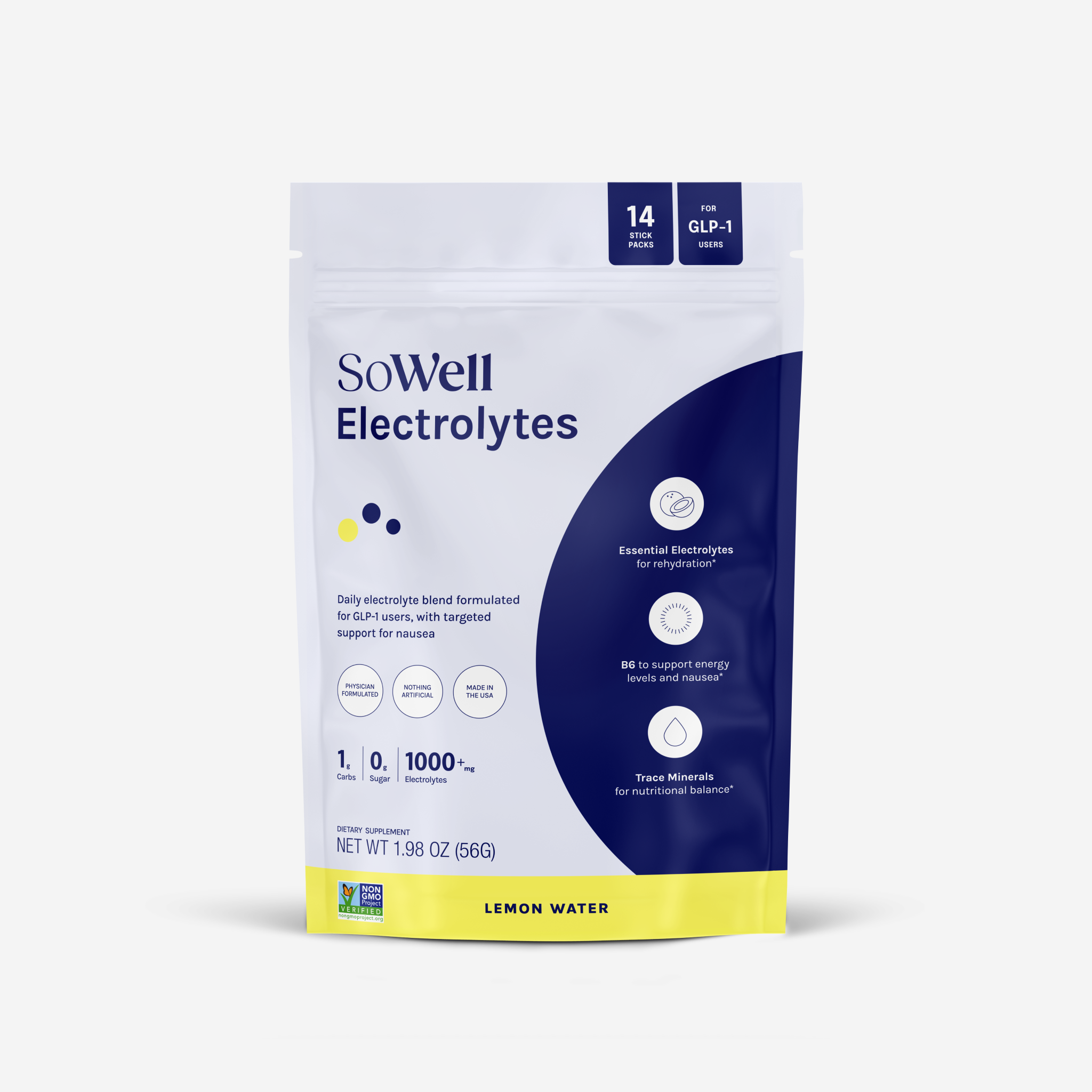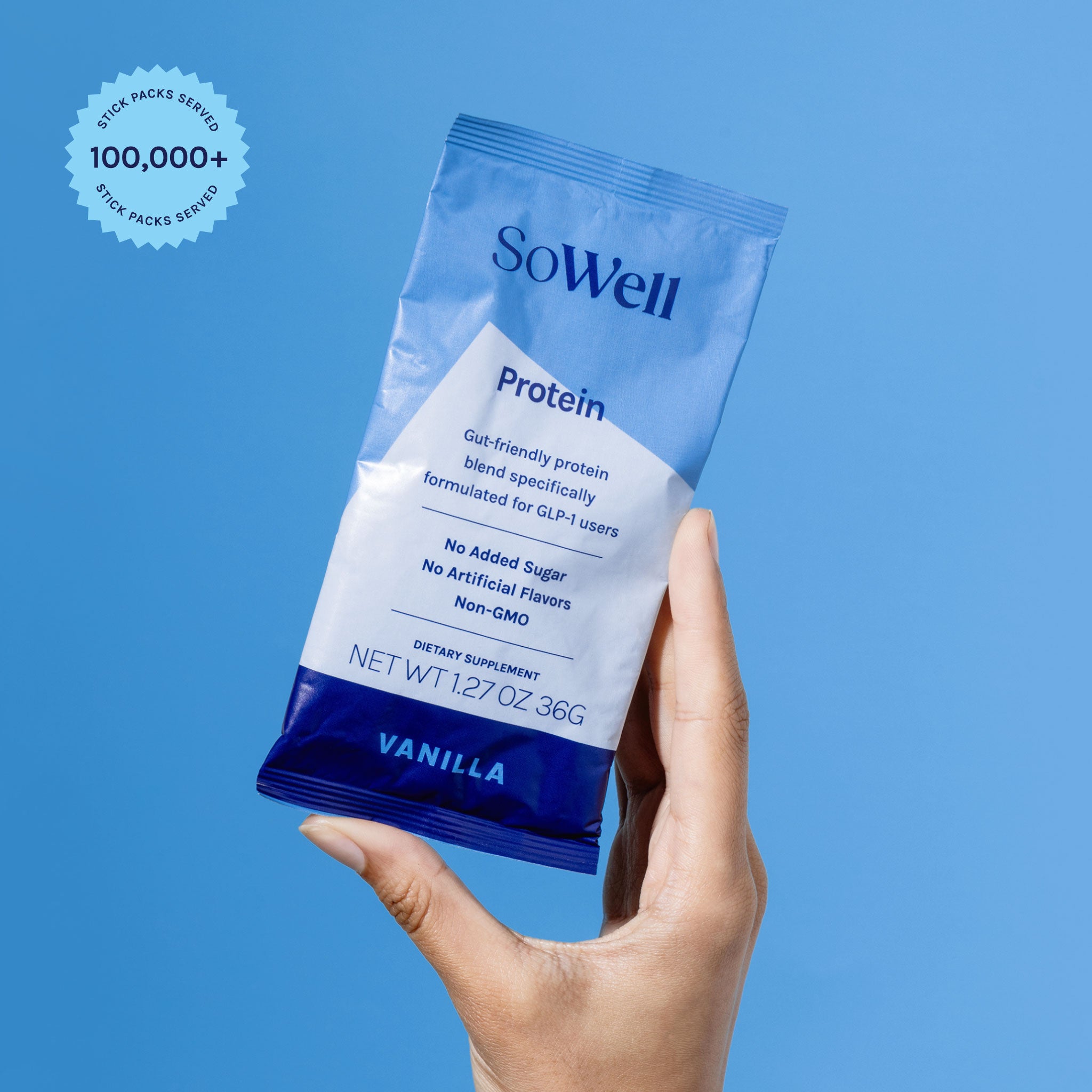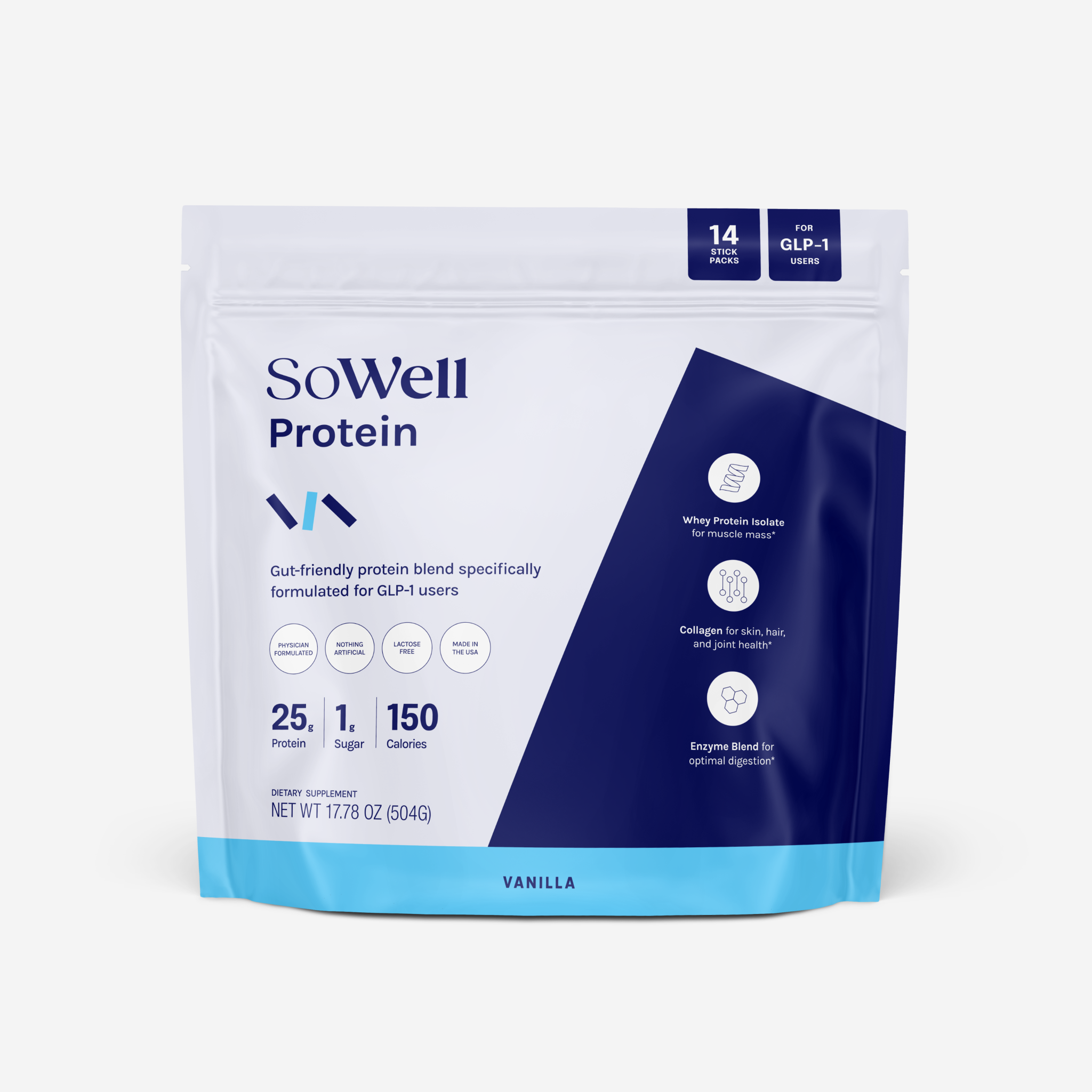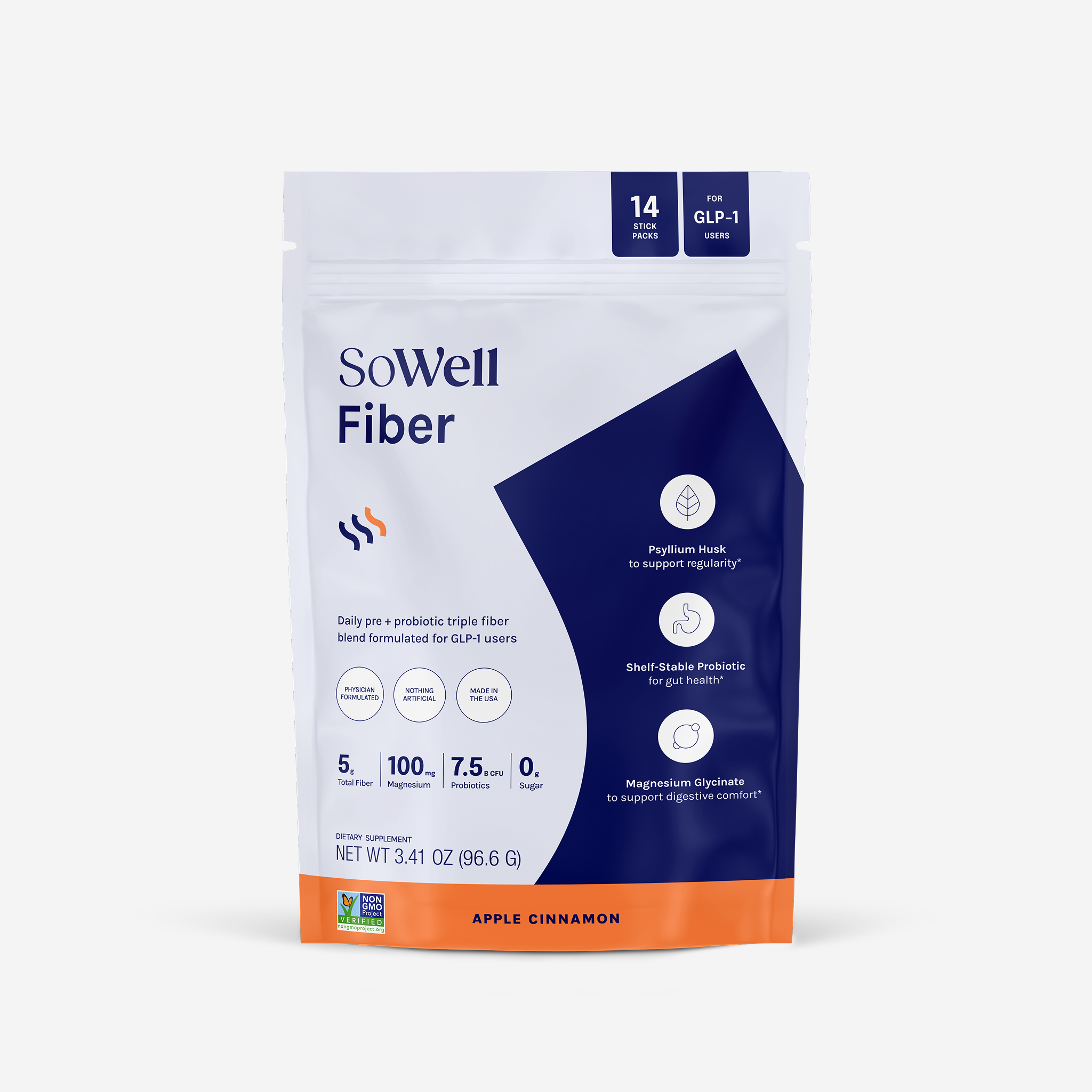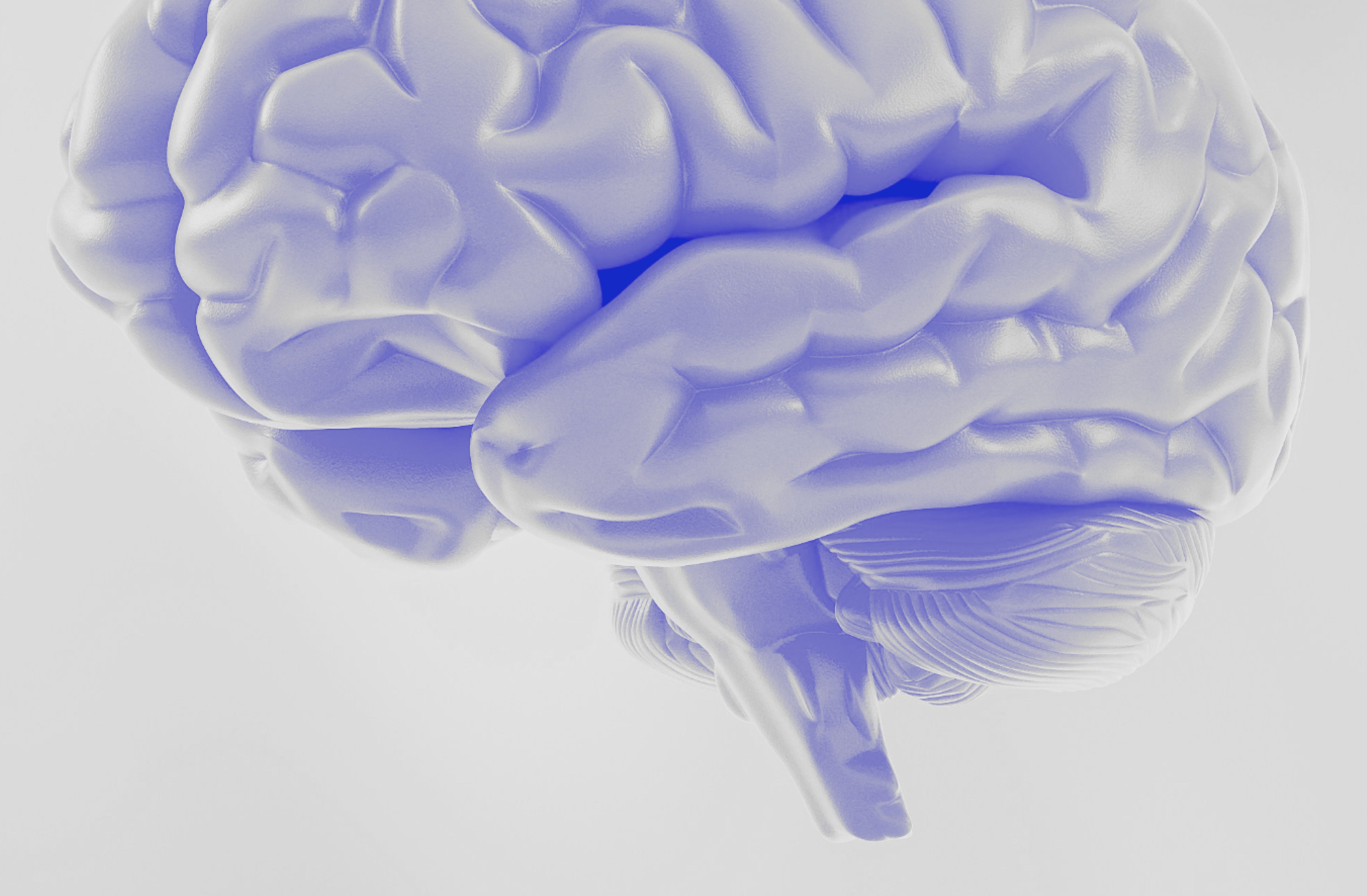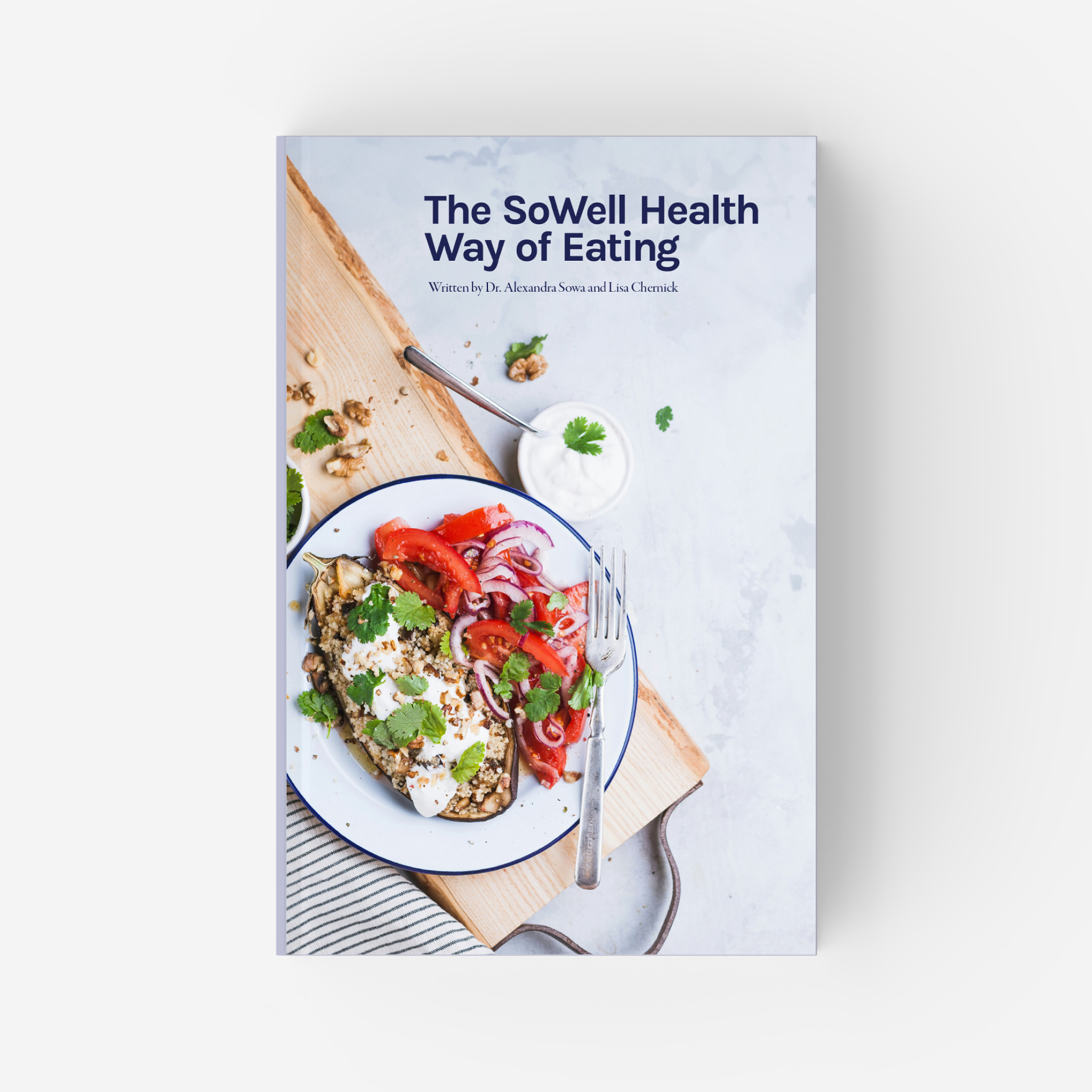
When the greatest athlete of all time admits she needed medical help to lose weight, it's time to rewrite everything we think we know about willpower. For decades, we've been sold a lie: weight loss is about mind over matter. Try harder. Push through.
Then Serena Williams—23-time Grand Slam champion, Olympic gold medalist, and the embodiment of athletic excellence—went public with her GLP-1 use, and the entire house of cards collapsed.
Her confession?
Despite training 5+ hours daily and walking 30,000 steps in Paris, the scale wouldn't budge after her second pregnancy. Here's the woman who dominated professional tennis for two decades, who trained through injuries that would sideline mortals, who built an empire on pure determination... and she couldn't lose her postpartum weight without medical intervention.
If Serena Williams can't out-exercise biology, what chance does anyone else have?
The Myth We've All Been Sold
Let's be brutally honest: we live in a world that worships willpower. Every diet ad, every fitness influencer, every well-meaning relative has preached the same gospel: if you're not losing weight, you're just not trying hard enough. This toxic narrative has created generations of people who blame themselves for biological realities completely outside their control.
Enter Serena Williams, stage left, with a truth bomb that should end this conversation forever.
"I literally was playing a professional sport, and I could never go back to where I needed to be for my health," Williams told TODAY's Savannah Guthrie.
Read that again.
A professional athlete, someone whose job description includes world-class fitness, couldn't overcome postpartum weight retention through traditional means.
The Biology Nobody Talks About
Here's what actually happens in your body, whether you're Serena Williams or Sarah from accounting:
Your weight is regulated by an intricate network of hormonal signals between your brain, gut, and fat tissue. More than 500 genes influence this system. Studies show that genetics accounts for approximately 70% of weight regulation. Not willpower, not motivation, not how many inspirational quotes you post on Instagram.
When you try to lose weight through calorie restriction alone, your body launches a full-scale rebellion:
- Hunger hormones surge
- Your metabolism slows to conserve energy
- Your brain becomes hypersensitive to food cues
- Leptin resistance prevents your brain from receiving "I'm full" signals
Not weakness. Rather, a sophisticated biological programming that kept our ancestors alive during famines. But in 2025, with a Dunkin’ on every corner and DoorDash at our fingertips, these survival mechanisms work against us.
For postpartum women, add in:
- Dramatic hormonal shifts
- Sleep deprivation that disrupts metabolic regulation
- Stress hormones that promote fat storage
- Physical changes that can permanently alter metabolism
Serena tried everything: vegan diets, vegetarian diets, high-protein approaches. She was walking 20,000 to 30,000 steps daily. The scale didn't care about her dedication. Biology wouldn’t negotiate.
Taking Shortcuts. Taking Medicine.
This is where GLP-1 medications enter the conversation, not as a shortcut, but as medicine that addresses the actual problem. GLP-1s don't work because people are lazy and need help. They work because they target the broken biological systems that diet and exercise can't fix.
As Dr. Alexandra Sowa explains in The Ozempic Revolution, "These medications aren't another concession to diet culture, but a means to free ourselves of it."
Williams lost 31 pounds on GLP-1s. But more importantly, she normalized her blood sugar, reduced joint pain, and, in her words, finally felt "normal again." This isn't about vanity or fitting into a Valentino skirt (though she documented that journey too). It's about addressing a medical condition with medical treatment.
Here’s how GLP-1s work:
- Regulates hunger signals so your brain actually gets the "I'm full" message
- Improves insulin sensitivity
- Slows digestion to maintain satiety
- Resets disrupted metabolic systems
For more information and resources about GLP-1s, visit the SoWell Method Resource Hub.
The Backlash Proves the Point
Of course, Williams faced criticism. Actress Jameela Jamil worried about side effects. Social media questioned whether she really "needed" medication. Critics pointed out her husband's financial ties to Ro, the telehealth company she now represents.
But here's what the backlash really reveals: we're so wedded to the willpower myth that we'd rather shame someone for seeking medical treatment than admit our entire framework is wrong. We're more comfortable believing millions of people lack discipline than accepting that obesity is a complex biological condition requiring medical intervention.
The numbers don't lie:
- 12% of US adults have used GLP-1 medications
- 6% are currently taking them (approximately 15 million people)
- Black adults (18%) are more likely to have used GLP-1s than white adults (10%)
- 57% of people believe society negatively judges GLP-1 users
That 57% proves we haven't let go of the willpower myth yet. The stigma is real – and it's rooted in the same mythology that's failed us for decades.
What This Means for Everyone
Serena's news matters because it gives everyone permission to stop blaming themselves for biological realities. If someone with unlimited resources, professional trainers, and a lifetime of athletic discipline needed medical support for weight loss, maybe, just maybe, your struggles aren't about lacking willpower at all.
This is especially crucial for:
Postpartum women who've been told to "bounce back" through diet and exercise, despite massive hormonal and physical changes that make traditional weight loss nearly impossible.
People with metabolic conditions who've spent years believing they're failures because they can't overcome insulin resistance, PCOS, or thyroid dysfunction on their own.
Anyone who's been weight-cycled into metabolic dysfunction through decades of restrictive dieting that's left their hunger hormones permanently dysregulated.
Elite athletes and fitness enthusiasts who exercise religiously but still struggle with weight due to genetic factors, hormonal imbalances, or metabolic adaptation.
The Future Is Medical, Not Motivational
The revolution is simple: weight management is healthcare, not a character test. Just as we wouldn't expect someone with diabetes to control blood sugar by trying harder, we need to stop expecting people to overcome complex metabolic conditions through determination.

The conversation isn't "should people use GLP-1s?" anymore. It's "how do we ensure everyone who needs medical support can access it?" Because right now:
- Most insurance plans don't cover GLP-1s for weight loss
- Medications cost $1,000+ monthly without coverage
- Only 34% of corporate health plans cover weight management medications
- Access remains limited by geography, income, and systemic healthcare disparities
Serena is using her platform to normalize medical treatment for weight management. Now we need systemic change to make that treatment accessible to everyone who needs it.
The Bottom Line
Serena Williams—the GOAT, the champion, the warrior who never backed down from a fight—couldn't beat biology with willpower. She needed medicine. And if that's not enough to bury the "just try harder" myth forever, we don't know what is. Your weight struggles aren't character flaws. They're biological realities that deserve medical support, not shame.
Serena said it best: "I feel like, after having my kids, my body was missing something. I don't know if it's something that the GLP-1 has, but I just feel normal again."
Everyone deserves to feel normal in their body. Everyone deserves access to treatments that work. The greatest athlete of all time just proved that biology beats willpower every time. The question isn't whether you deserve medical support for weight management. You do. The question is when we'll finally build a healthcare system that provides it.
Your Questions About Serena's GLP-1 Journey, Answered
Which GLP-1 medication did Serena Williams use?
While Serena hasn't specified the exact medication, she mentioned using GLP-1 agonists, a class that includes Ozempic, Wegovy, and Mounjaro.
How much weight did Serena Williams lose on GLP-1s?
Serena Williams lost 31 pounds using GLP-1 medications after struggling with postpartum weight retention.
Are GLP-1 medications safe for postpartum women?
GLP-1 medications should be discussed with a healthcare provider, especially for breastfeeding mothers. They're not recommended during pregnancy or breastfeeding.
How much do GLP-1 medications cost?
Without insurance, GLP-1 medications typically cost $1,000+ monthly. Coverage varies by insurance plan.
